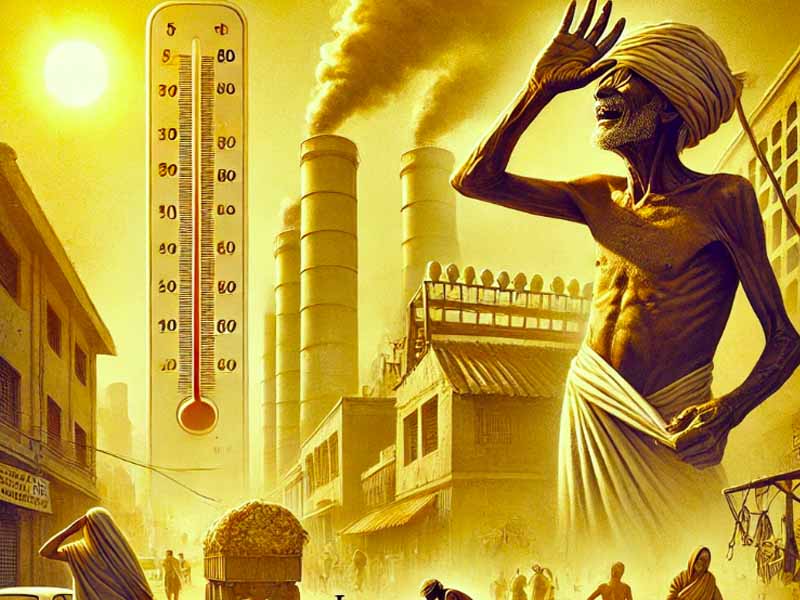
Resilienceapac – Early heatwave conditions have already started impacting India’s economy, leaving businesses struggling to adapt. For Nitin Goel, a textile manufacturer in Ludhiana, the early summer has turned into a financial nightmare. His family has been producing winter clothing for decades, but with shorter winters, demand for sweaters and jackets has plummeted.
“We’ve had to start making t-shirts instead of sweaters as the winter is getting shorter each year. Our sales have halved in the last five years and are down a further 10% this season,” Goel said. The unpredictability of seasonal transitions has forced businesses like his to rethink their entire model. Retailers are also shifting risks onto manufacturers, opting for a “sale or return” model instead of pre-ordering inventory. This has left small business owners bearing the brunt of losses, with some even shutting down.
Early heatwave patterns are not just impacting industries, they are also wreaking havoc on agriculture. The Indian Meteorological Department reported that last month was the hottest February in 125 years. Farmers in Devgad, a key mango-producing region, are seeing disastrous effects on their Alphonso mango orchards.
“Groundbreaking Musical Theatre Invention by Will”
“Production this year would be only around 30% of the normal yield,” said Vidyadhar Joshi, a mango farmer. He explained that increased irrigation costs and failed blossoms due to excessive heat have put immense financial pressure on farmers. Some are even sending laborers home due to a lack of work, further disrupting local economies.
Winter crops such as wheat, chickpeas, and rapeseed are also at risk. Heatwaves in 2022 reduced yields by 15-25%, and experts fear a similar pattern this year. While the government remains optimistic about wheat production, independent analysts warn that continued early heatwaves could force India to rely on costly imports and extend its wheat export ban, which has been in place since 2022.
With temperatures expected to stay above normal from March to May, industries and policymakers must act swiftly to mitigate economic disruptions. Small businesses require financial support, while farmers need assistance to counteract crop losses. Investments in climate-resilient agricultural techniques and improved weather prediction models could help India navigate the challenges posed by early heatwaves.
As extreme weather events become more frequent, adaptation will be key. Whether India’s economy is truly prepared for these shifts remains an open question, but one thing is clear: the early heatwave is already taking its toll.
“Business Efficiency with Digital Logistics Innovation”
Resilienceapac - Climate Crisis Unleashed is becoming more visible and devastating in South Asia, where monsoon rains are no longer…
Resilienceapac - Acer rises to the top as one of the standout performers in the Asia Pacific technology landscape. In…
Resilienceapac - Huawei Eyes Southeast Asia in a strategic push to expand its artificial intelligence (AI) chip business, aiming to…
Resilienceapac - Papua New Guinea marked 50 years of independence on September 16, 2025, a moment both celebratory and sobering.…
Resilienceapac - US Tariffs Shake Southeast Asia as Washington enforces sharp tariff hikes on several ASEAN nations. The United States…
Resilienceapac - Japan Halts Health reforms after growing political pressure and public opposition forced the government to delay a sweeping…